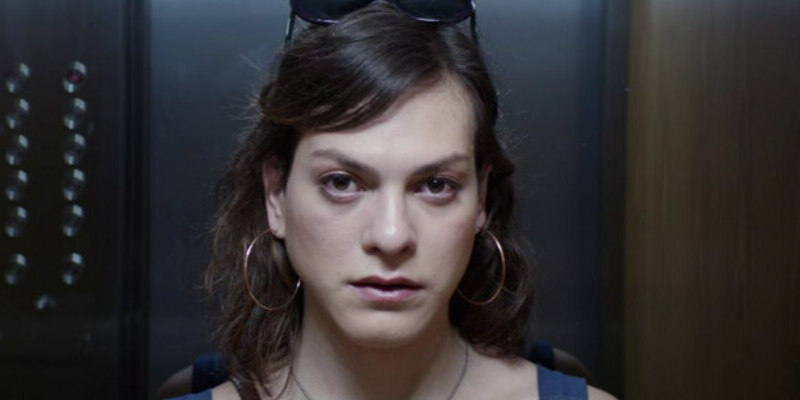Following her lover's death, a transitioning woman faces prejudice from
his family and wider society.
Directed by: Sebastián Lelio
Starring: Daniela Vega, Francisco Reyes, Luis
Gnecco, Aline Küppenheim
A waitress by day and lounge singer by night, the transsexual Marina (a
captivating turn from singer Daniela Vega) is in a loving
relationship with Orlando (Francisco Reyes), an affluent man three
decades her senior, and has just moved into his apartment. One night Orlando
suffers a heart attack and is rushed to hospital, where he passes
away.
Before she has time to process the loss of her lover, Marina is questioned
by police, who want to know why Orlando's body is marked with bruises
(obtained when he fell down the stairs of his apartment complex). A
well-meaning but intrusive social worker hounds Marina, incorrectly
believing she may have been the victim of an abusive relationship. Save for
a kindly brother (Neruda
star Luis Gnecco), Orlando's surviving family members display
explicit contempt for Marina, barring her from his funeral and demanding she
leave his apartment.
There's something compelling about watching characters negotiate incredibly
stressful scenarios, and it's a template that's served recent movies like
The Measure of a Man
and
Two Days, One Night
well. Such a narrative runs the danger of entering the territory of misery
porn, allowing a privileged audience to wallow in a movie protagonist's
misfortune for 90 minutes before deciding which restaurant to dine at.
Thankfully that's not the case with A Fantastic Woman. It's a film that inspires outrage from its audience at the treatment of
its protagonist, but it never asks us to pity her. Strong and defiant
throughout, if brittle within, Marina is a figure of inspiration, and you
don't leave the film feeling sorry for her, rather you exit wishing you had
an ounce of her fortitude.
Despite the indignities she's subjected to, Marina remains calm and
collected throughout, saving her rage for the punching bag she keeps in her
apartment. She maintains a public face of quiet dignity, while those around
her are losing theirs. Some of the prejudice she faces is explicit, even
violent in one instance. Perhaps more damaging are the blows dealt by
ignorance rather than malice, like the abasement she suffers at the hands of
a social worker, a liberal equivalent of John Wayne's misguided saviour of
The Searchers. A telling scene comes when, during a medical examination, the male doctor
asks the female social worker to leave the room before Marina drops her
towel.
There are a couple of moments in which director
Sebastian Lelio throws subtlety out the window - Aretha Franklin's '
A Natural Woman' playing on a car stereo; a slo-mo shot of Marina struggling
to walk during a storm - but otherwise he tells the story in a naturalistic,
unobtrusive fashion, letting his inspiring protagonist take centre stage.
Lelio makes the commendable decision to never expose Marina's genitalia, the
nature of which is a question posed by the film's more hurtful supporting
characters. We may be curious, but ultimately it's an irrelevance, and none
of our business.
A Fantastic Woman is on MUBI UK
now.






